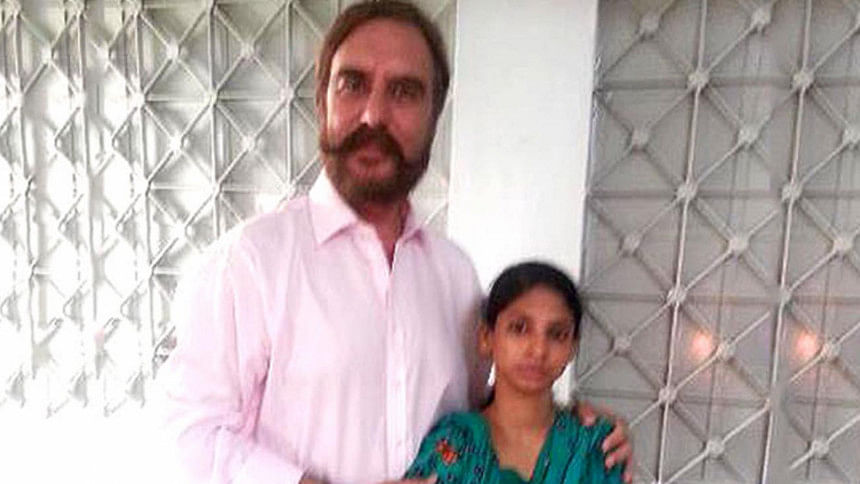Pakistani Bajrangi Bhaijaans want to reunite Indian woman with family

In a scenario straight out of Bajrangi Bhaijaan, Pakistani activists have launched a fresh campaign to unite a hearing and speech impaired Indian woman who has been stranded in the neighbouring country for at least 15 years.
The renewed push to unite the woman – whom Karachi-based rights activist Bilqees Edhi christened Geeta, because no one knows her real name – with her parents is clearly inspired by the success of the Bollywood film, which features Salman Khan overcoming all odds to take a deaf and mute girl back to her relatives in Pakistan.
Leading rights activist and Pakistan's former human rights minister Ansar Burney, who will be in India in September to meet the Dalai Lama in Dharamsala, acknowledged that the fresh effort to find the woman's parents were because of the success of Bajrangi Bhaijaan in both countries.
Burney jokingly said it seemed that the Bollywood film was inspired by his efforts in 2012 to find Geeta's family during a visit to India.
"I went to India three years ago with photos and video of Geeta to try and find her family but I couldn't trace any leads. My trust has started a cross-border campaign to try and find Geeta's relatives so that she can be handed over to them," Burney told Hindustan Times on phone from Britain.
"I would also appreciate it if the Indian government helps to find her family," he said.
Geeta now lives with Bilqees Edhi, the wife of Abdul Sattar Edhi, founder of Edhi Foundation, Pakistan's largest and best-known charity.
"The girl, whose age is about 22 to 24, keeps telling me through gestures that she wants to fly back home in an aeroplane. Sometimes, she cries a lot. I pray to Allah that she is reunited with her family soon," Bilqees told Hindustan Times on phone from Karachi on Saturday.
"She seems to be from a very religious family – her dupatta is always on her head and she often prays at a mandir we set up for her at our home. She also spends a lot of time with the children at the Edhi Foundation."
The woman apparently entered the eastern Pakistani city of Lahore on a train from India almost 15 years ago. She was found by police and sent to a state-run shelter.
Geeta's inability to communicate caused a lot of frustration and she was moved from one welfare home to another as she often tried to escape and quarrelled with staff, Bilqees said.
"Efforts made by the authorities to trace her family in India produced no results and she was finally sent to Karachi. She looks much younger than her actual age because she's very short," she said.
After she was unable to fit into various shelters, Bilqees brought Geeta to a home run by the Edhi Foundation in early 2012.
Geeta writes often in Hindi and has filled several notebooks with her writing, but Bilqees said no one had been able to decipher what she has written because no one in the Edhi Foundation speaks or reads Hindi.
She also developed her own form of sign language and has indicated that she has 12 siblings in India, including seven brothers and five sisters. Bilqees said Geeta told her through sign language that she left home after becoming annoyed with her parents.
"She walked a long distance, passing a river and a temple before she boarded a train and went to sleep," Bilqees said.
"She seems to be from a village, possibly in Indian Punjab. But it could be any village and that's why it's so difficult to trace her parents."
Geeta observes 'roza', the fast during the Islamic holy month of Ramzan, with other girls and women living in the home. But she also prays frequently at the mandir that Bilqees helped set up in a corner of the home.
"She cries a lot whenever she worships, possibly because she remembers her parents and siblings," Bilqees said.

 For all latest news, follow The Daily Star's Google News channel.
For all latest news, follow The Daily Star's Google News channel. 



Comments